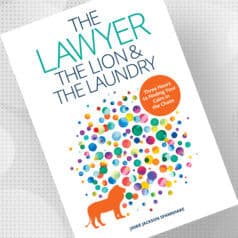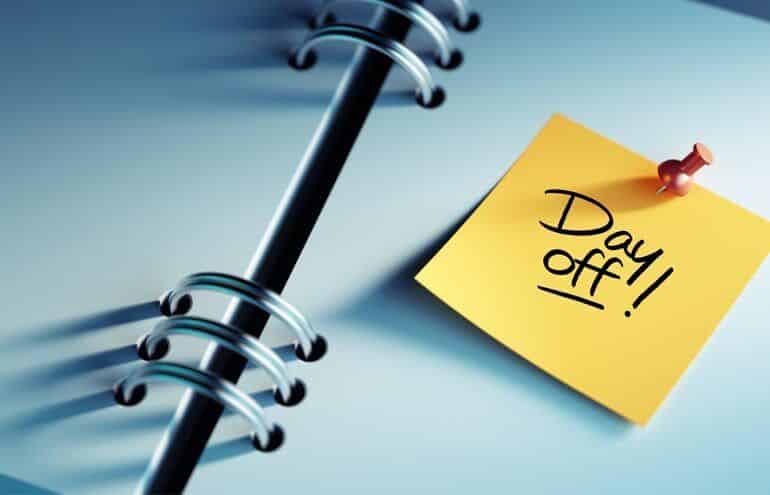I was reading a recent study about free time. The conclusion? We need between two and five hours of free time every day to be our happiest.
I shared this finding with two friends of mine, a working couple with three kids. They laughed, saying they were lucky to get two to three minutes of free time every day.
I agree. Two free hours every day? Finding time for anything other than obligations can be challenging when there’s work and home and family and friends and household responsibilities and doctor’s appointments and … You get the idea.
So what exactly is “free time”? The study calls it “discretionary time” and defines it like this:
“[D]iscretionary time [is] the amount of time spent on leisure activities or other pursuits where the primary function is the use of time for pleasure or another intrinsically worthwhile purpose. … Therefore, discretionary time is not simply whatever time remains outside of paid work hours.”
In other words, it is the time we spend doing what we want. And it is important to our well-being.
Why Free Time Is Important to Mental and Physical Well-Being
People who have little to no free time have a smaller proportion of their schedules to fill with things they want to do. This means spending less time on things that are empirically linked to happiness, like hanging out with friends, creating music or art, or playing sports. In addition, the stressors associated with lack of free time can lead to unhealthy habits, like eating poorly and not exercising. Plus, those of us who are “time poor” tend to feel more depressed and mentally exhausted.
Even if it’s not possible to get two free hours of time every day, we can create additional free time and use it wisely with these five tips.
Five Ways to Get and Use More Free Time
1. Buy More Free Time
If you buy free time, does that mean it’s no longer free? Regardless, you can buy more time by paying for services such as house cleaning, yard work, cooking, household maintenance and any other work outside of your job. This frees you from some of your obligations so you have more time.
2. Prioritize and Delegate
Two of the best time management tools I know are prioritizing and delegating.
When we prioritize, we look at what’s important to us and decide NOT to do some things because they aren’t our highest priorities. For example, maybe you really want to be the room parent at your child’s school, but your priority is to spend your time with your child at home rather than with other parents coordinating events for all the children at school. So you decide not to be a room parent.
My second favorite time management tool is delegating. Consider all the things you are doing, especially at work, and determine what you can entrust to someone else. Can your assistant screen your emails? Can you hire someone to follow up on outstanding invoices? Also consider household responsibilities. Are you and your partner equally contributing? If you are dealing with a particularly busy time at work, can your partner do more for a while? Or maybe your teenagers could be responsible for dinner one night a week. They might not provide the meal you would, but at least you won’t have to plan or cook it.
And don’t forget that automation is a form of delegating. Can you put technology systems in place to handle repetitive tasks so you can work more efficiently and get out of the office earlier?
3. Use Every Minute the Way You Want
What constitutes an enjoyable activity varies for each person. You may like running, but the next person thinks it is torture. Your colleague may love to cook, but you feel it’s an obligatory activity you don’t enjoy. Make sure you use your time the way you want.
Even if you only have 30 minutes of free time every day, don’t waste it on activities that aren’t enjoyable. It’s easy to get sucked into activities that fill our little free time but that we don’t actually enjoy. The ones that come to mind first are doomscrolling on your social media accounts or reading all the negative news.
Pay close attention to how you use whatever amount of free time you have, and use it wisely.
4. Don’t Put Pressure on Yourself to Have Fun
Sometimes free time can be used for fun, but sometimes what we need and want is downtime. Downtime is needed for rejuvenation, especially when we have been working long hours or in stressful circumstances. Free time is not one more opportunity to be productive. Your free time can be sitting and doing very little if that’s what you want.
5. Know That Too Much Free Time Also Leads to Unhappiness
Even when we are lacking free time, we can find solace in knowing that too much free time also leads to unhappiness. When we have more than five hours of free time in our days, we can feel like we don’t have purpose and we aren’t productive. These feelings are also correlated with unhappiness.
To paraphrase Goldilocks: We don’t want too much; we don’t want too little; we want exactly the right amount of free time. Or at least we want to use whatever amount of free time we have in ways that make us happier.
Illustration ©iStockPhoto.com
Have You Read Jamie Spannhake’s Bestselling Book?
 Find Your Calm in the Chaos
Find Your Calm in the Chaos
In “The Lawyer, the Lion, and the Laundry: Three Hours to Finding Your Calm in the Chaos,” lawyer and certified health coach Jamie Spannhake helps you learn how to CHOOSE, ACT and THINK in ways that will clarify your desires and set priorities so you can reclaim your time and enjoy your life.
Available in the Attorney at Work bookstore, here.

















